1. Falzone L, Salomone S, Libra M. Evolution of cancer pharmacological treatments at the turn of the third millennium. Front Pharmacol. 2018; 9:1300. PMID:
30483135.
2. Alvarez-Cardona JA, Ray J, Carver J, et al. Cardio-oncology education and training: JACC Council perspectives. J Am Coll Cardiol. 2020; 76:2267–2281. PMID:
33153587.
3. Shi S, Lv J, Chai R, et al. Opportunities and challenges in cardio-oncology: a bibliometric analysis from 2010 to 2022. Curr Probl Cardiol. 2022; 101227. PMID:
35500730.
5. Zhao D. Epidemiological features of cardiovascular disease in Asia. JACC Asia. 2021; 1:1–13. PMID:
36338365.
6. Global Burden of Disease 2019 Cancer Collaboration. Kocarnik JM, Compton K, et al. Cancer incidence, mortality, years of life lost, years lived with disability, and disability-adjusted life years for 29 cancer groups from 2010 to 2019: a systematic analysis for the global burden of disease study 2019. JAMA Oncol. 2022; 8:420–444. PMID:
34967848.
7. Centers for Disease Control and Prevention, National Center for Health Statistics. About multiple cause of death, 1999–2020. CDC WONDER Online Database website [Internet]. Atlanta (GA): Centers for Disease Control and Prevention;2022. cited 2022 February 21. Available from:
https://wonder.cdc.gov/.
8. Ng CJ, Teo CH, Abdullah N, Tan WP, Tan HM. Relationships between cancer pattern, country income and geographical region in Asia. BMC Cancer. 2015; 15:613. PMID:
26335225.
10. Cao M, Li H, Sun D, Chen W. Cancer burden of major cancers in China: a need for sustainable actions. Cancer Commun (Lond). 2020; 40:205–210. PMID:
32359212.
11. Liu Y, Zhang YL, Liu JW, Fang FQ, Li JM, Xia YL. Emergence, development, and future of cardio-oncology in China. Chin Med J (Engl). 2018; 131:2640–2644. PMID:
30381608.
12. Oka T, Akazawa H, Sase K, Hatake K, Komuro I. Cardio-oncology in Japan. JACC CardioOncol. 2020; 2:815–818. PMID:
34396300.
13. Sung H, Ferlay J, Siegel RL, et al. Global cancer statistics 2020: GLOBOCAN estimates of incidence and mortality worldwide for 36 cancers in 185 countries. CA Cancer J Clin. 2021; 71:209–249. PMID:
33538338.
14. Siegel RL, Miller KD, Fuchs HE, Jemal A. Cancer statistics, 2022. CA Cancer J Clin. 2022; 72:7–33. PMID:
35020204.
15. National Cancer Institute. Surveillance, Epidemiology, and End Results Program. Cancer Stat Facts [Internet]. Bethesda (MD): National Cancer Institute;2022. cited 2022 July 21. Available from:
https://seer.cancer.gov.
16. American Cancer Society. The Cancer Atlas [Internet]. Atlanta (GA): American Cancer Society;2022. cited 2022 July 11. Available from:
https://canceratlas.cancer.org.
17. Institute for Health Metrics and Evaluation (IHME). Website of IHME [Internet]. Seattle (WA): Institute for Health Metrics and Evaluation;2022. cited 2022 July 7. Available from:
https://www.healthdata.org.
19. Ferlay J, Ervik M, Lam F, Colombet M, Mery L, Piñeros M, Znaor A, Soerjomataram I, Bray F. Global Cancer Observatory: Cancer Today [Internet]. Lyon: International Agency for Research on Cancer;2020. cited 2022 August 10. Available from:
https://gco.iarc.fr/today.
20. Kimura T. East meets West: ethnic differences in prostate cancer epidemiology between East Asians and Caucasians. Chin J Cancer. 2012; 31:421–429. PMID:
22085526.
21. Gilchrist SC, Barac A, Ades PA, et al. Cardio-oncology rehabilitation to manage cardiovascular outcomes in cancer patients and survivors: a scientific statement from the American Heart Association. Circulation. 2019; 139:e997–1012. PMID:
30955352.
22. Kwan ML, Cheng RK, Iribarren C, et al. Risk of heart failure with preserved versus reduced ejection fraction in women with breast cancer. Breast Cancer Res Treat. 2022; 193:669–675. PMID:
35429322.
23. Paterson DI, Wiebe N, Cheung WY, et al. Incident cardiovascular disease among adults with cancer: a population-based cohort study. JACC CardioOncol. 2022; 4:85–94. PMID:
35492824.
24. Youn JC, Chung WB, Ezekowitz JA, et al. Cardiovascular disease burden in adult patients with cancer: an 11-year nationwide population-based cohort study. Int J Cardiol. 2020; 317:167–173. PMID:
32360647.
25. Strongman H, Gadd S, Matthews AA, et al. Does cardiovascular mortality overtake cancer mortality during cancer survivorship?: an English retrospective cohort study. JACC CardioOncol. 2022; 4:113–123. PMID:
35492818.
26. Agarwala V, Choudhary N, Gupta S. A risk-benefit assessment approach to selection of adjuvant chemotherapy in elderly patients with early breast cancer: a mini review. Indian J Med Paediatr Oncol. 2017; 38:526–534. PMID:
29333024.
27. Okura Y, Takayama T, Ozaki K, et al. Future projection of cancer patients with cardiovascular disease in Japan by the year 2039: a pilot study. Int J Clin Oncol. 2019; 24:983–994. PMID:
30903421.
28. Chongsuvivatwong V, Phua KH, Yap MT, et al. Health and health-care systems in southeast Asia: diversity and transitions. Lancet. 2011; 377:429–437. PMID:
21269685.
29. The World Bank. World Bank open data [Internet]. Washington, D.C.: The World Bank;2022. cited 2022 July 29. Available from:
https://data.worldbank.org/.
30. Rahman MM, Karan A, Rahman MS, et al. Progress toward universal health coverage: a comparative analysis in 5 South Asian countries. JAMA Intern Med. 2017; 177:1297–1305. PMID:
28759681.
31. Ohman RE, Yang EH, Abel ML. Inequity in cardio-oncology: identifying disparities in cardiotoxicity and links to cardiac and cancer outcomes. J Am Heart Assoc. 2021; 10:e023852. PMID:
34913366.
33. Eniu A, Cherny NI, Bertram M, et al. Cancer medicines in Asia and Asia-Pacific: what is available, and is it effective enough? ESMO Open. 2019; 4:e000483. PMID:
31423334.
34. Goh BC, Lim JF. Cancer drugs in Asian populations: availability, accessibility, and affordability. Cancer J. 2020; 26:323–329. PMID:
32732675.
35. Leighl NB, Nirmalakumar S, Ezeife DA, Gyawali B. An arm and a leg: the rising cost of cancer drugs and impact on access. Am Soc Clin Oncol Educ Book. 2021; 41:1–12.
36. IQVIA Institute. Global Oncology Trends 2022. Durham (NC): IQVIA Institute;2022.
37. Kimman M, Jan S, Yip CH, et al. ACTION Study Group. Catastrophic health expenditure and 12-month mortality associated with cancer in Southeast Asia: results from a longitudinal study in eight countries. BMC Med. 2015; 13:190. PMID:
26282128.
38. Venkatakrishnan K, Burgess C, Gupta N, et al. Toward optimum benefit-risk and reduced access lag for cancer drugs in Asia: a global development framework guided by clinical pharmacology principles. Clin Transl Sci. 2016; 9:9–22. PMID:
26836226.
39. Frankart AJ, Nagarajan R, Pater L. The impact of proton therapy on cardiotoxicity following radiation treatment. J Thromb Thrombolysis. 2021; 51:877–883. PMID:
33033980.
40. Gupta M, Singh N, Verma S. South Asians and cardiovascular risk: what clinicians should know. Circulation. 2006; 113:e924–e929. PMID:
16801466.
41. Kario K, Chen CH, Park S, et al. Consensus document on improving hypertension management in Asian patients, taking into account Asian characteristics. Hypertension. 2018; 71:375–382. PMID:
29311253.
42. Telli ML, Chang ET, Kurian AW, et al. Asian ethnicity and breast cancer subtypes: a study from the California Cancer Registry. Breast Cancer Res Treat. 2011; 127:471–478. PMID:
20957431.
43. Zhou W, Christiani DC. East meets West: ethnic differences in epidemiology and clinical behaviors of lung cancer between East Asians and Caucasians. Chin J Cancer. 2011; 30:287–292. PMID:
21527061.
44. O’Donnell PH, Dolan ME. Cancer pharmacoethnicity: ethnic differences in susceptibility to the effects of chemotherapy. Clin Cancer Res. 2009; 15:4806–4814. PMID:
19622575.
45. Hao W, Shi YY, Qin YN, et al. Cardioprotective effect of Chinese herbal medicine for anthracycline-induced cardiotoxicity in cancer patients: a meta-analysis of prospective studies. Medicine (Baltimore). 2022; 101:e29691. PMID:
35905252.
47. Bhatia N, Lenihan D, Sawyer DB, Lenneman CG. Getting the SCOOP-survey of cardiovascular outcomes from oncology patients during survivorship. Am J Med Sci. 2016; 351:570–575. PMID:
27238918.
48. Herrmann J, Loprinzi C, Ruddy K. Building a cardio-onco-hematology program. Curr Oncol Rep. 2018; 20:81. PMID:
30203261.
49. Chang WT, Feng YH, Kuo YH, et al. The impact of a multidisciplinary cardio-oncology programme on cardiovascular outcomes in Taiwan. ESC Heart Fail. 2020; 7:2135–2139. PMID:
32621792.
50. Pareek N, Cevallos J, Moliner P, et al. Activity and outcomes of a cardio-oncology service in the United Kingdom-a five-year experience. Eur J Heart Fail. 2018; 20:1721–1731. PMID:
30191649.
51. International Cardio-Oncology Society. IC-OS Centers of excellence certification [Internet]. Tampa (FL): International Cardio-Oncology Society;2022. cited 2022 August 20. Available from:
https://ic-os.org/excellence-certification/.
52. Lyon AR, Dent S, Stanway S, et al. Baseline cardiovascular risk assessment in cancer patients scheduled to receive cardiotoxic cancer therapies: a position statement and new risk assessment tools from the Cardio-Oncology Study Group of the Heart Failure Association of the European Society of Cardiology in collaboration with the International Cardio-Oncology Society. Eur J Heart Fail. 2020; 22:1945–1960. PMID:
32463967.
53. Hayek SS, Ganatra S, Lenneman C, et al. Preparing the cardiovascular workforce to care for oncology patients: JACC review topic of the week. J Am Coll Cardiol. 2019; 73:2226–2235. PMID:
31047011.
54. Peng J, Rushton M, Johnson C, et al. An international survey of healthcare providers’ knowledge of cardiac complications of cancer treatments. Cardiooncology. 2019; 5:12. PMID:
32154018.
55. Xia Y, Liu J. Working together to advance cardio-oncology in China. JACC CardioOncol. 2020; 2:144–145. PMID:
34396222.
56. Kim H, Chung WB, Cho KI, et al. Diagnosis, treatment, and prevention of cardiovascular toxicity related to anti-cancer treatment in clinical practice: an opinion paper from the Working Group on Cardio-Oncology of the Korean Society of Echocardiography. J Cardiovasc Ultrasound. 2018; 26:1–25. PMID:
29629020.
57. Bhatt DL. Birth and maturation of cardio-oncology. JACC CardioOncol. 2019; 1:114–116. PMID:
34396168.
58. Yoon GJ, Telli ML, Kao DP, Matsuda KY, Carlson RW, Witteles RM. Left ventricular dysfunction in patients receiving cardiotoxic cancer therapies are clinicians responding optimally? J Am Coll Cardiol. 2010; 56:1644–1650. PMID:
21050974.
59. Oren O, Neilan TG, Fradley MG, Bhatt DL. Cardiovascular safety assessment in cancer drug development. J Am Heart Assoc. 2021; 10:e024033. PMID:
34913360.
62. Lagomarsino G, Garabrant A, Adyas A, Muga R, Otoo N. Moving towards universal health coverage: health insurance reforms in nine developing countries in Africa and Asia. Lancet. 2012; 380:933–943. PMID:
22959390.
63. Addison D, Campbell CM, Guha A, Ghosh AK, Dent SF, Jneid H. Cardio-oncology in the era of the COVID-19 pandemic and beyond. J Am Heart Assoc. 2020; 9:e017787. PMID:
32713239.
64. Evans WK, Ashbury FD, Hogue GL, Smith A, Pun J. Implementing a regional oncology information system: approach and lessons learned. Curr Oncol. 2014; 21:224–233. PMID:
25302031.
65. Sadler D, Chaulagain C, Alvarado B, et al. Practical and cost-effective model to build and sustain a cardio-oncology program. Cardiooncology. 2020; 6:9. PMID:
32690995.
66. Herrmann J, Lenihan D, Armenian S, et al. Defining cardiovascular toxicities of cancer therapies: an International Cardio-Oncology Society (IC-OS) consensus statement. Eur Heart J. 2022; 43:280–299. PMID:
34904661.
68. Rhee JW, Ky B, Armenian SH, Yancy CW, Wu JC. Primer on biomarker discovery in cardio-oncology: application of omics technologies. JACC CardioOncol. 2020; 2:379–384. PMID:
33073248.
69. Gerik L. Cardio-oncology, then and now: an interview with Barry Trachtenberg. Methodist DeBakey Cardiovasc J. 2019; 15:e1–e3.
70. Dreyfuss AD, Bravo PE, Koumenis C, Ky B. Precision cardio-oncology. J Nucl Med. 2019; 60:443–450. PMID:
30655328.
71. Attia ZI, Kapa S, Lopez-Jimenez F, et al. Screening for cardiac contractile dysfunction using an artificial intelligence-enabled electrocardiogram. Nat Med. 2019; 25:70–74. PMID:
30617318.
72. Zhou Y, Hou Y, Hussain M, et al. Machine learning-based risk assessment for cancer therapy-related cardiac dysfunction in 4300 longitudinal oncology patients. J Am Heart Assoc. 2020; 9:e019628. PMID:
33241727.
73. Chaix MA, Parmar N, Kinnear C, et al. Machine learning identifies clinical and genetic factors associated with anthracycline cardiotoxicity in pediatric cancer survivors. JACC CardioOncol. 2020; 2:690–706. PMID:
34396283.
74. Sadler DB, Moudgil R, Arco T, et al. Abstract 11675: Global cardio oncology registry: structure for a multinational collaboration. Circulation. 2021; 144(Suppl 1):11675.
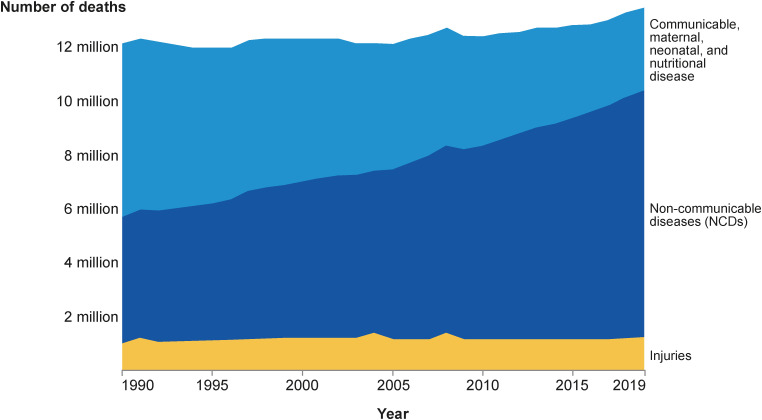
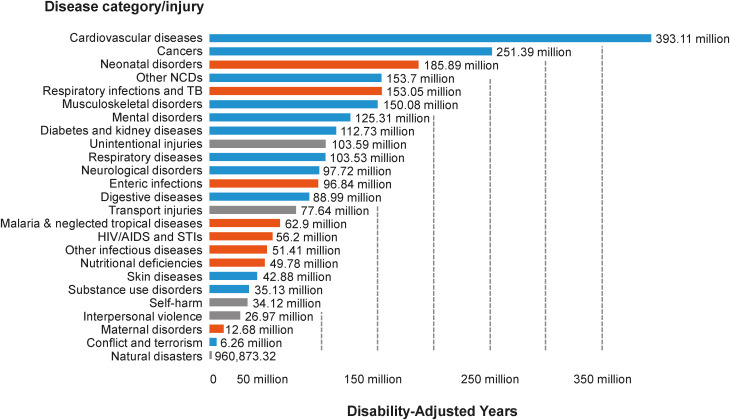
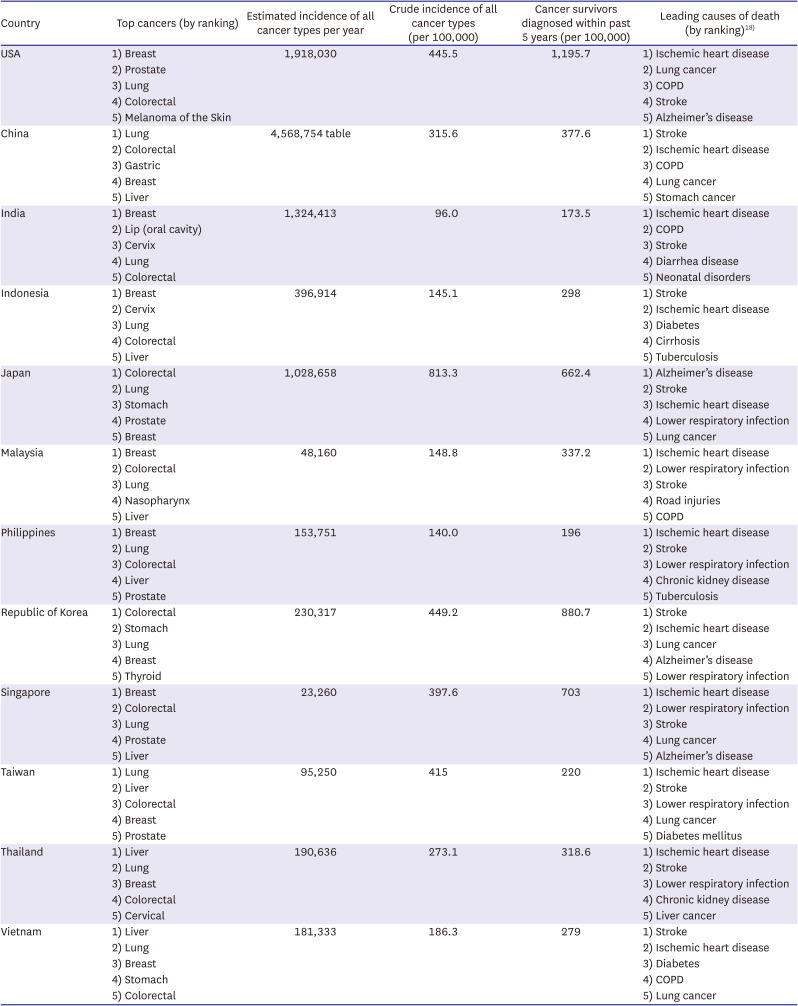
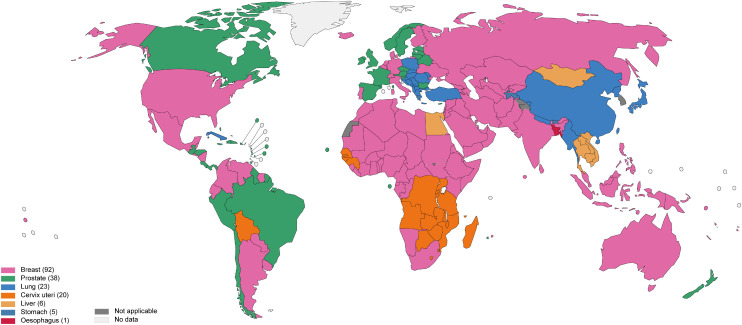
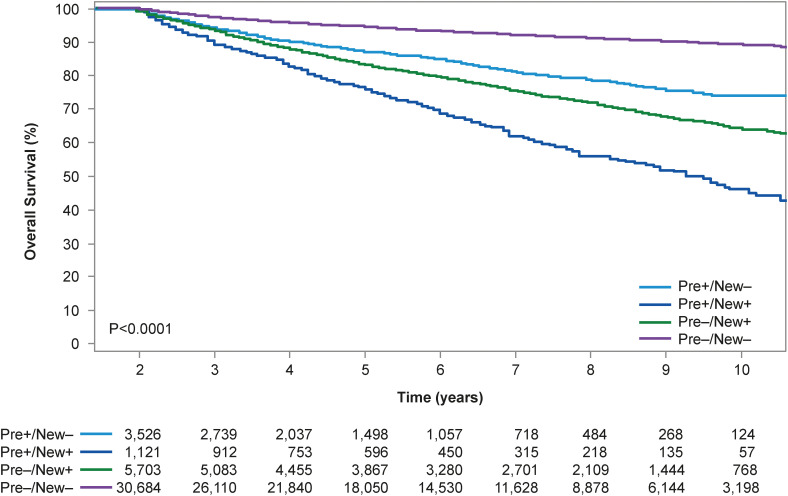
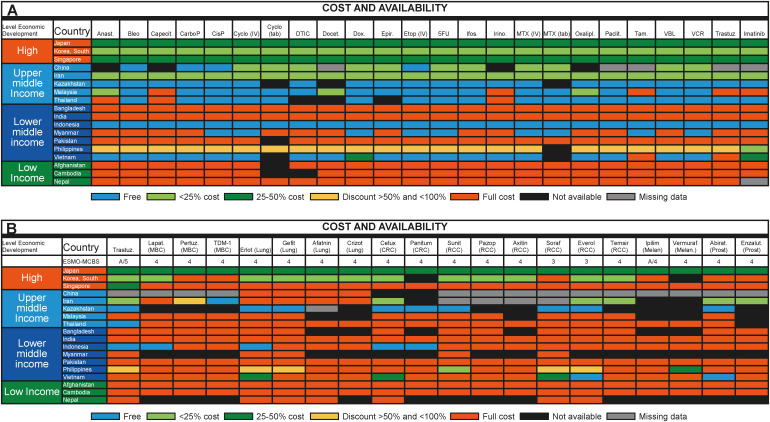
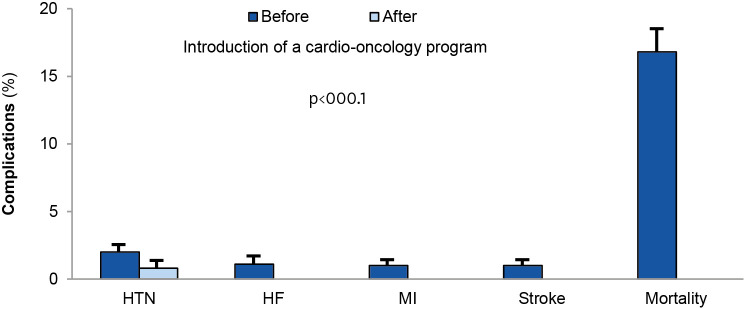

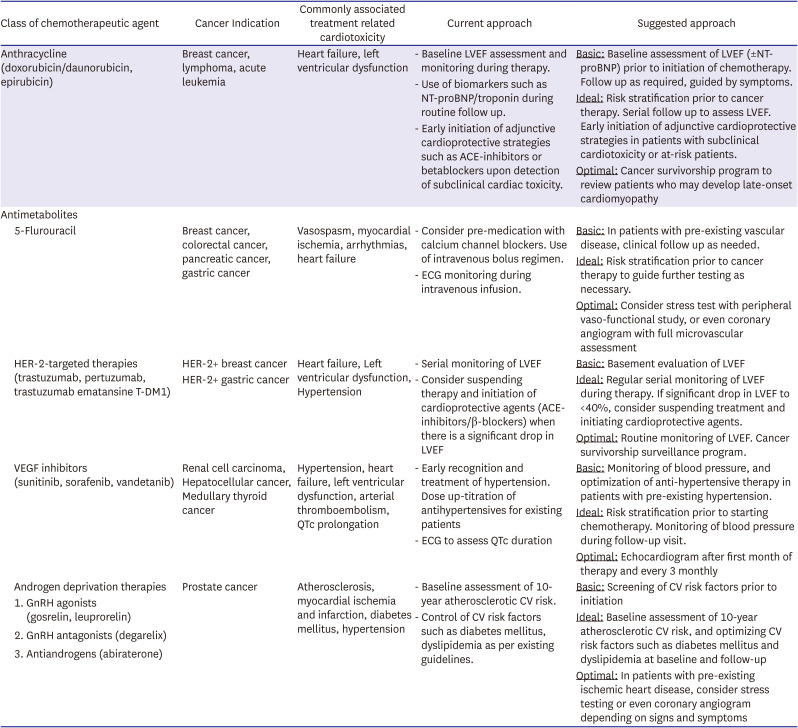
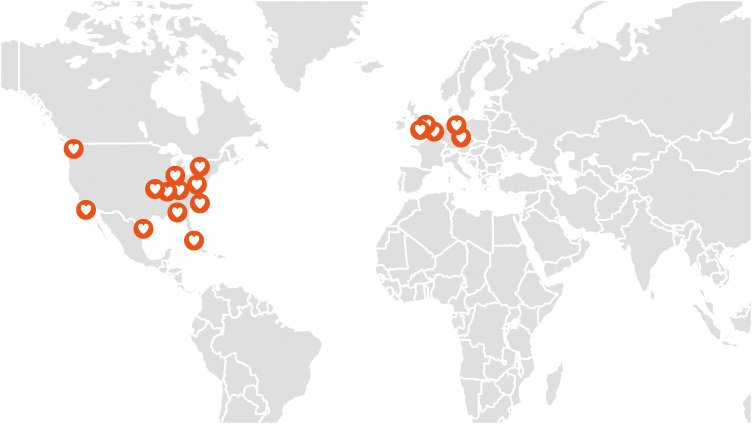
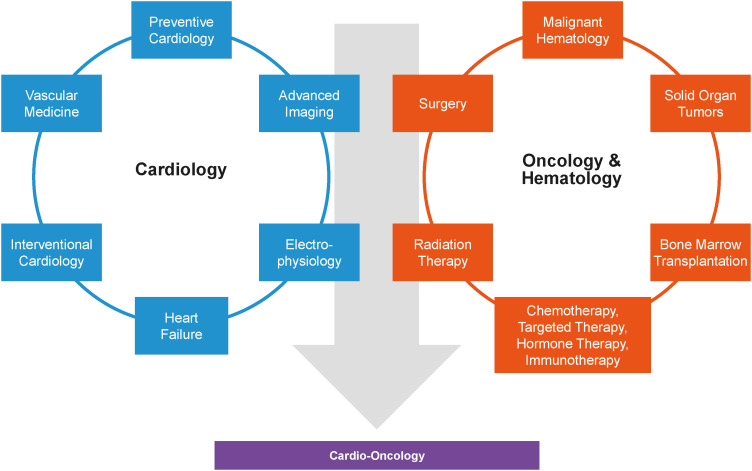
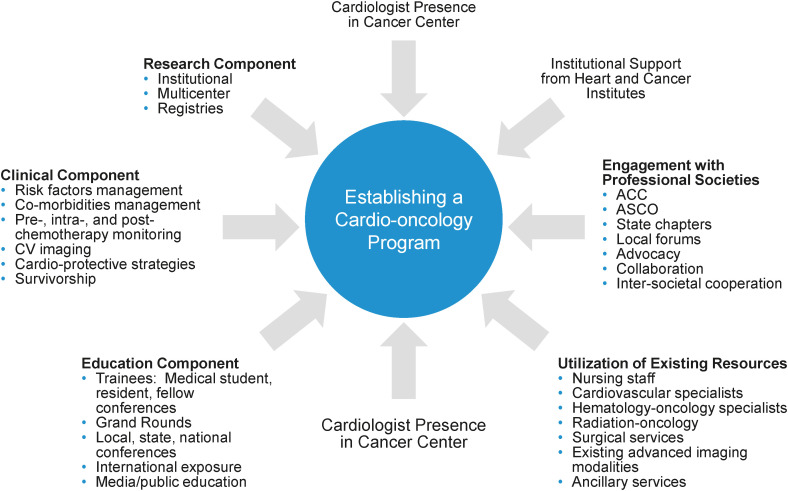




 PDF
PDF Citation
Citation Print
Print



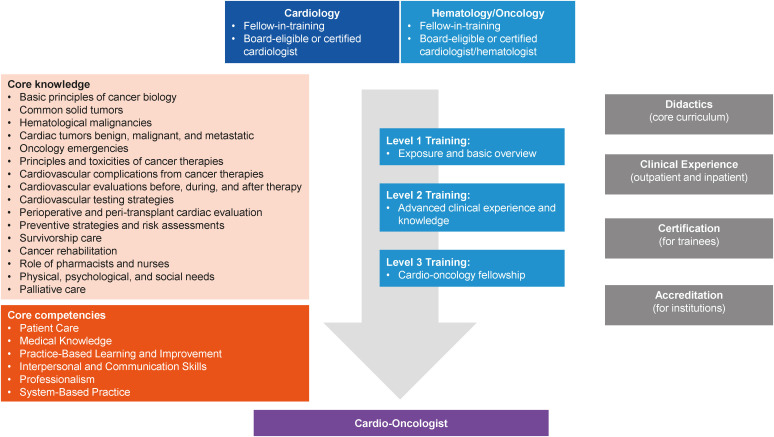
 XML Download
XML Download